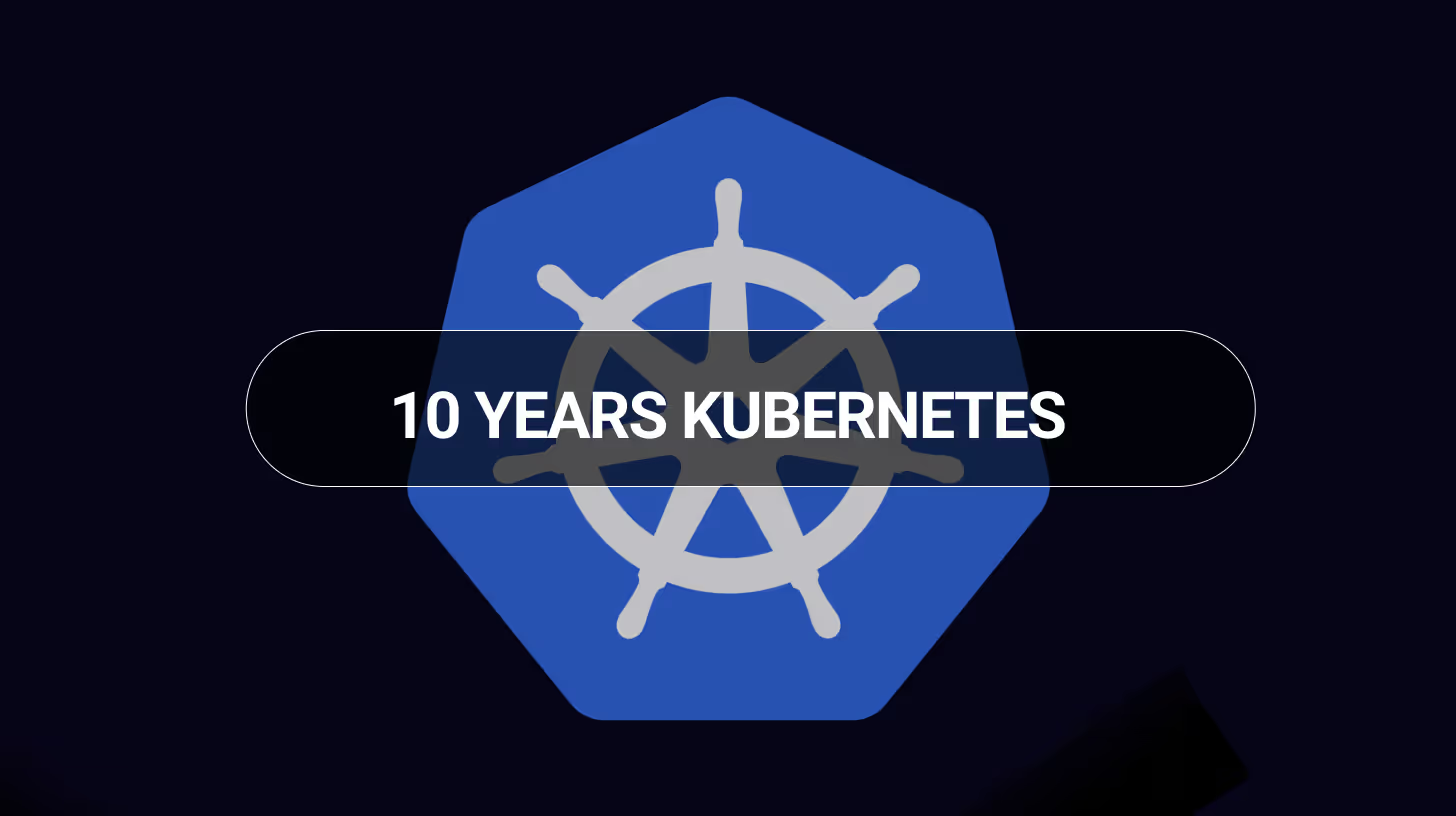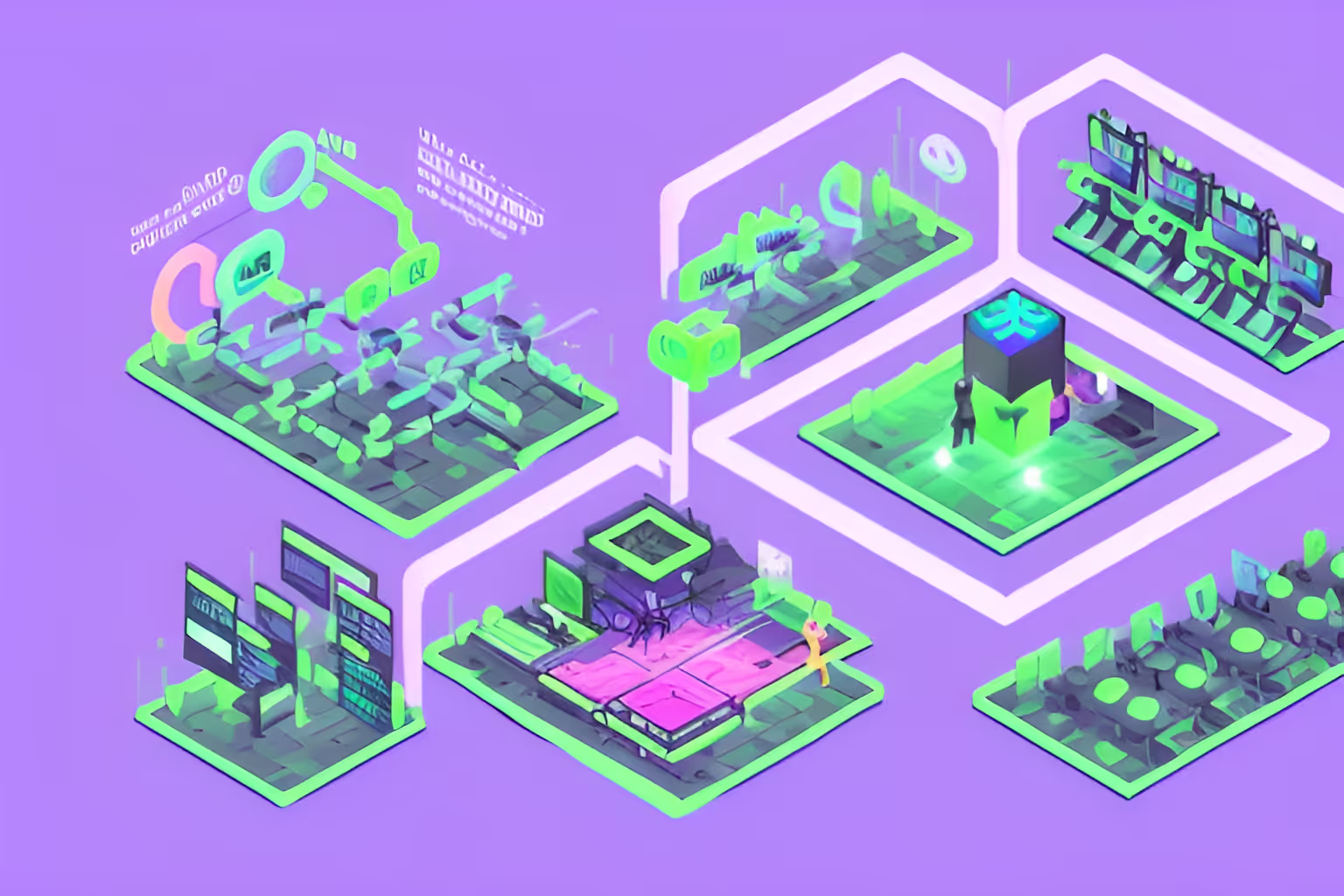
Decade of Kubernetes in Review: Milestones and Impact on the DevOps Landscape

Kubernetes celebrates its 10th anniversary this year, highlighting its critical role in modern software development. From startups to enterprises, Kubernetes has become the de facto standard for container orchestration, providing a powerful framework for managing complex applications seamlessly.
How It Started
Originating from Google's internal need to manage containerized applications at scale, Kubernetes was open-sourced in 2014. It quickly evolved with contributions from a vibrant community, addressing the increasing demand for an efficient system to manage expansive container environments. This allowed developers to shift their focus from infrastructure to innovation.
Core Purpose of Kubernetes
Kubernetes primarily enhances the management, scaling, and deployment of application containers across host clusters, providing developers with the necessary tools to maintain distributed systems robustly. It ensures application scalability, failover management, and supports diverse deployment patterns. Crucially, it underpins cloud-native application development, promoting a resilient infrastructure ecosystem.
Must-Haves to Work Efficiently with Kubernetes:
Effective use of Kubernetes hinges on several key practices and tools:
- Cluster Management: Leverage interfaces like the Kubernetes Dashboard or sophisticated CLI tools for resource management and state monitoring.
- Monitoring and Logging: Deploy solutions such as Prometheus and Fluentd for deep insights into application performance and system health.
- CI/CD Integration: Utilize Kubernetes' compatibility with CI/CD tools to enhance pipeline efficiency, ensuring quick and dependable software delivery.
- Security Practices: Implement stringent security measures, including Role-Based Access Control (RBAC) and network policies, to protect your applications.
Common Pain Points
Kubernetes' complexity can be challenging, often presenting a steep learning curve. Developers typically encounter challenges such as maintaining consistent configurations, effectively scaling resources, and securing deployments. These technical hurdles not only impact day-to-day operations but also shape strategic decisions within the Kubernetes community.
Community Responses to Kubernetes Complexity: Opinionated vs. Non-Opinionated Approaches
The challenges associated with Kubernetes' complexity have led the open-source community to diverge into two main camps: 'opinionated' and 'non-opinionated' approaches to system configuration. Opinionated approaches aim to simplify Kubernetes management by providing more direct, prescriptive paths to deployment, thereby reducing the learning curve. This can be particularly appealing to those who wish to mitigate the common pain points of configuration and scaling. Conversely, non-opinionated frameworks prize flexibility, offering a variety of methods to achieve the same operational goals. While this allows for customized solutions, it can exacerbate the initial challenges of complexity and learning, potentially overwhelming new users. This division reflects ongoing debates within the community on how to best manage the inherent complexities of Kubernetes while catering to diverse user needs and skill levels.
Exploring Kubernetes Simplification Options: A Look at mogenius
Tackling the complexities of Kubernetes becomes simpler with solutions like mogenius, a cloud-agnostic platform-as-a-service (PaaS) that optimizes Kubernetes management without full infrastructure control. This PaaS provides a layer on top of your existing Kubernetes clusters, blending flexibility with oversight, thus streamlining operations.
mogenius not only offers a free tier but also enhances the operation and scalability of cloud-native applications. It creates a flexible, structured environment suitable for organizations that appreciate the ease of platforms like Heroku but need greater scalability and control.
mogenius adopts an opinionated approach, simplifying the Kubernetes experience by abstracting much of the complexity. This model reduces the need for extensive learning, making it ideal for teams that want to focus on development without the overhead of deep Kubernetes expertise.
Enhancing Developer Autonomy and Efficiency
mogenius supports a wide range of technologies and integrates seamlessly with systems like Azure, AWS, and Kubernetes itself. It empowers developers with self-service options that reduce dependency on specialized DevOps skills, enhancing productivity by automating workflows and significantly reducing operational costs through extensive DevOps task automation.
Featuring enterprise-grade security, scalable infrastructure solutions, and smooth CI/CD integrations, mogenius enables engineering teams to deploy and manage applications more effectively. Robust customer support ensures any issues are promptly addressed, ensuring smoother operations.
Whether you're a startup eager to expand without substantial DevOps investment or an enterprise seeking to retain simplicity while gaining control, mogenius offers a practical, adaptable solution. Explore mogenius for free or consult with our experts to see how mogenius can bolster your operations.
Conclusion
As Kubernetes continues to dominate the cloud-native landscape, understanding its framework and capabilities is essential. Whether managing Kubernetes directly or leveraging tools like those offered by mogenius to maximize its potential, we must continue to innovate in how we build, deploy, and scale applications.
FAQ
Interesting Reads
The latest on DevOps and Platform
Engineering trends
Subscribe to our newsletter and stay on top of the latest developments



